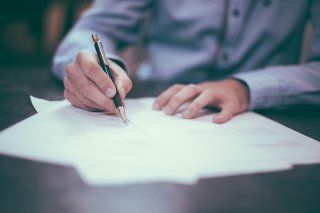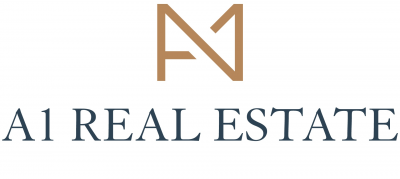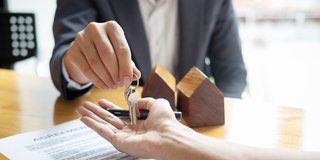
Hôtel vs appart-hôtel vs appartement meublé : quelle option pour un séjour de 3 à 12 mois à Paris ?
Summary
- Qu’est-ce qu’un propriétaire-bailleur ?
- Quelles sont les obligations du propriétaire-bailleur face au locataire ?
- Quels sont les droits du propriétaire-bailleur ?
When renting your home, the landlord has obligations towards the tenant: decent housing, ensuring tranquility, transmitting rent receipts, carrying out repairs and major work, etc.
Like the tenant, the rental guarantees rights, and obligations to the owner.
> The rights and prohibitions of the tenant
What is an owner-landlord?
You should know that it is possible to be an owner without being a landlord, especially when he lives in his main residence.
Conversely, it is also possible to be a lessor without being an owner. This is the case when the owner delegates the rental management to a third party. This third party would be a signatory to the lease contract and is committed to the tenant. In this case, the owner is only responsible for the condition of the accommodation.
By definition, the owner-lessor is an owner and a lessor, contractually bound vis-à-vis the tenant.
What are the obligations of the landlord towards the tenant?
- Providing decent housing
The landlord must deliver the dwelling in good condition, healthy and safe. The work clause in the lease must specify:
- the nature of the work
- charging the cost of the work to rents
- the duration of this imputation
- the terms of compensation in case of early departure of the tenant.
The accommodation must meet certain criteria:
- The living area: the main room of the dwelling must be equal to at least 9 m² and have a ceiling height equivalent to 2.20 m.
- Comfort: the dwelling must be equipped with equipment making it suitable for residential use (presence of drinking water facilities, sanitary facilities, a kitchen area including a sink and a wastewater disposal system, etc.)
- Safety and health: the dwelling must not affect the physical safety and health of the tenant. In the case of mandatory technical diagnostics, certain diagnoses make it possible to guarantee full safety and health to the tenant, such as the lead diagnosis or the diagnosis on the condition of the interior installation of electricity.
- Energy performance: housing must not be energy-intensive. It is possible to call on a professional so that the latter carries out an energy performance diagnosis (DPE).
2. Guarantee the tenant a complete and peaceful enjoyment of the accommodation, and hidden defects of the housing
The tenant has the right to live serenely without receiving untimely visits. The landlord must respect the privacy of his tenant and must not make untimely visits without warning.
3. Provide all necessary documents to the tenant
- Example of the lease agreement
- The technical diagnostics file
- The inventory of fixtures of entry
- The rules of the co-ownership
- Rent receipts
- Notice of rent due
- Proof of the regularization of charges
- The dilapidated grid
- The act of suretyship (useful link : Guarantor and Surety)
- The furniture inventory (useful link: What is the list of mandatory equipment for a furnished rental? )
4. Carry out work
Homeowners are required to carry out all repairs other than routine maintenance.
On his own initiative or at the request of the tenant, he must take charge of all the repair work of the damage caused by the natural deterioration of the property (such as: ventilation system, humidity, doors, shutters, heating, electricity, gas, wall and floor coverings, plumbing in case of wear ...) as well as renovation work allowing so-called decent living conditions.
He must ensure the good condition and suitability of carpentry, building materials, interior plumbing and kitchens. Apartment owners also have to finance the replacement of expensive equipment such as boilers and radiators.
In general, the landlord must undertake all the work necessary to maintain the rental property in good condition, as well as the most expensive ones (tenantsare mainly responsible for ongoing maintenance work).
The 10 most common jobs for the owner :
- Modernisation and repair of electricity and gas networks
- Ventilation system
- Heating system
- Drinking water supply
- Replace faucets and mixers
- Repair of pipes and pipes
- Boiler replacement
- Descaling of electric water heaters
- Padding due to deterioration of the flooring
- Replacing windows
Warning: The fact that there is work in the property does not allow the owner to increase the current rent.
What are the rights of the owner-lessor?
- Collect rents : the lease contract is not a free contract. By signing this contract, the tenant has undertaken to pay each month the rent and charges stipulated in it.
- Require a security deposit: The landlord may request a payment of the security deposit to guard against potential negligence on the part of the tenant in terms of maintenance or unpaid.
- Require a deposit: the deposit is a precaution, a security, which allows the owner-lessor to turn against the tenant in case of unpaid and rental debts.
- Obtain a certificate of rental insurance: The landlord is entitled to claim from the tenant when he enters the premises, and each year, a certificate of insurance from the tenant.
- Access to housing in case of repair and work. Before the work begins, the owner-lessor must inform the lessee, in writing, of the nature and methods of carrying out the work. The work cannot be carried out on Saturdays, Sundays and public holidays without the express agreement of the tenant
- When renting your home, the landlord has obligations towards the tenant: decent housing, ensuring tranquility, transmitting rent receipts, carrying out repairs and major work, etc.
- By definition, the owner-lessor is an owner and a lessor, contractually bound vis-à-vis the tenant.
- The landlord must: provide decent housing, guarantee the tenant full and peaceful enjoyment of the dwelling, provide all necessary documents to the tenant and carry out work
- The landlord has the right to: collect the rent, require a security deposit and a deposit, obtain a certificate of insurance and access the accommodation for work

You want to
to sell in Paris or its surroundings ?
Posted on 15/05/2023 by
Andy LECUYER




